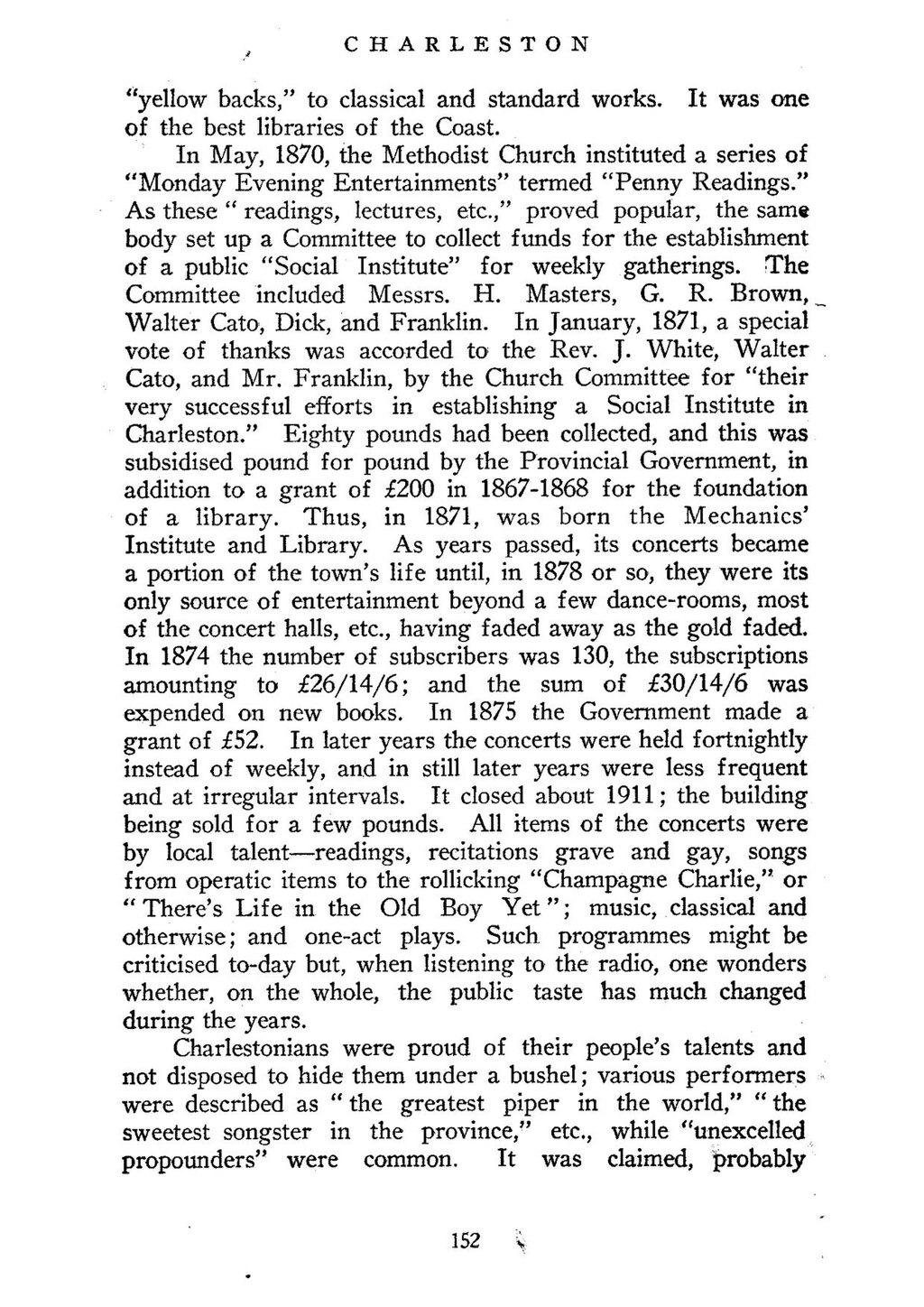CHARLESTON
“yellow backs,” to classical and standard works. It was one of the best libraries of the Coast.
In May, 1870, the Methodist Church instituted a series of “Monday Evening Entertainments” termed “Penny Readings.” As these “readings, lectures, etc.,” proved popular, the same body set up a Committee to collect funds for the establishment of a public “Social Institute” for weekly gatherings. The Committee included Messrs. H. Masters, G. R. Brown, Walter Cato, Dick, and Franklin. In January, 1871, a special vote of thanks was accorded to the Rev. J. White, Walter Cato, and Mr. Franklin, by the Church Committee for “their very successful efforts in establishing a Social Institute in Charleston.” Eighty pounds had been collected, and this was subsidised pound for pound by the Provincial Government, in addition to a grant of £200 in 1867-1868 for the foundation of a library. Thus, in 1871, was born the Mechanics’ Institute and Library. As years passed, its concerts became a portion of the town’s life until, in 1878 or so, they were its only source of entertainment beyond a few dance-rooms, most of the concert halls, etc., having faded away as the gold faded. In 1874 the number of subscribers was 130, the subscriptions amounting to £26/14/6; and the sum of £30/14/6 was expended on new books. In 1875 the Government made a grant of £52. In later years the concerts were held fortnightly instead of weekly, and in still later years were less frequent and at irregular intervals. It closed about 1911; the building being sold for a few pounds. All items of the concerts were by local talent—readings, recitations grave and gay, songs from operatic items to the rollicking “Champagne Charlie,” or “There’s Life in the Old Boy Yet”; music, classical and otherwise; and one-act plays. Such programmes might be criticised to-day but, when listening to the radio, one wonders whether, on the whole, the public taste has much changed during the years.
Charlestonians were proud of their people’s talents and not disposed to hide them under a bushel; various performers were described as “the greatest piper in the world,” “the sweetest songster in the province,” etc., while “unexcelled propounders” were common. It was claimed, probably
152
